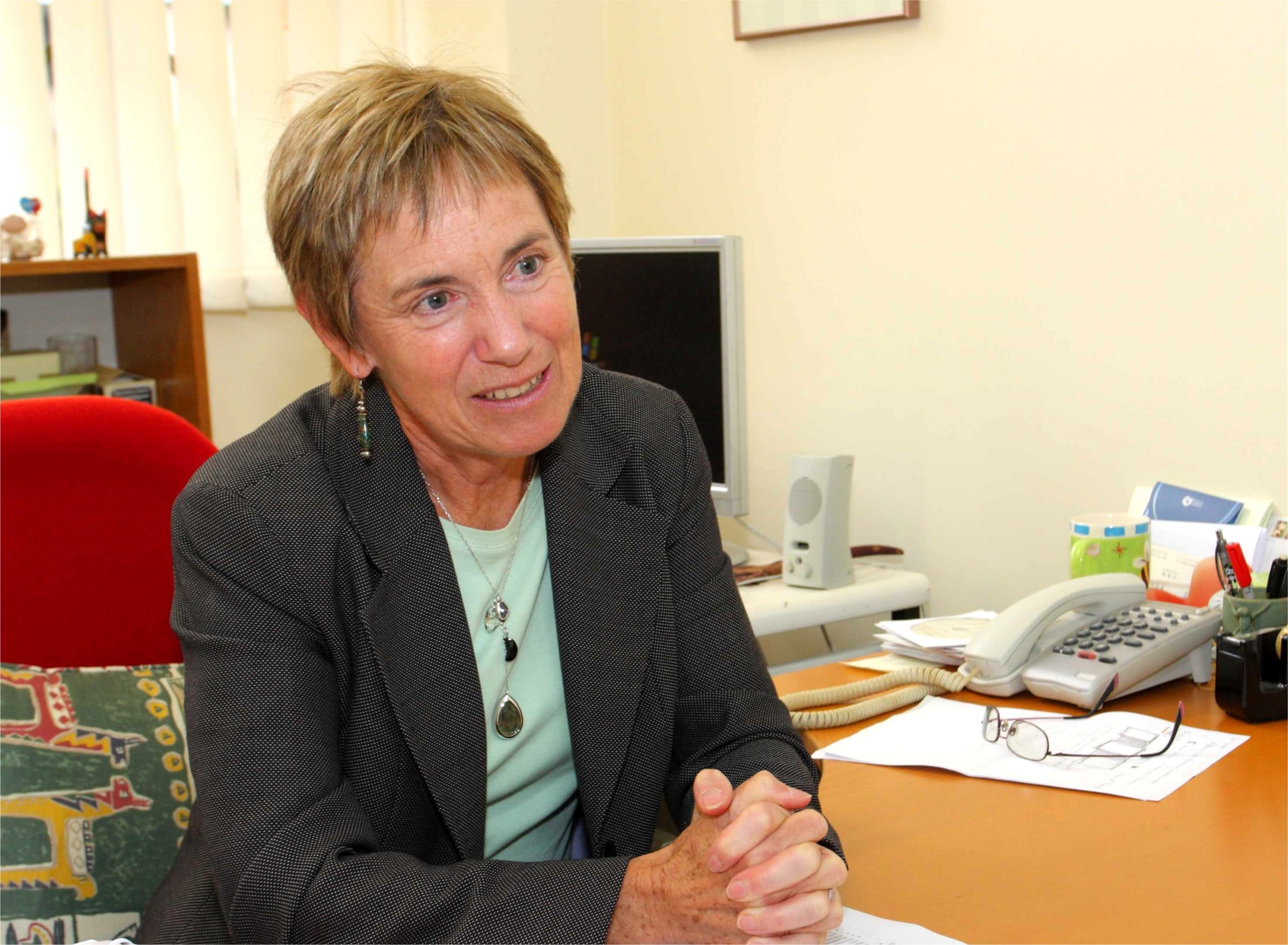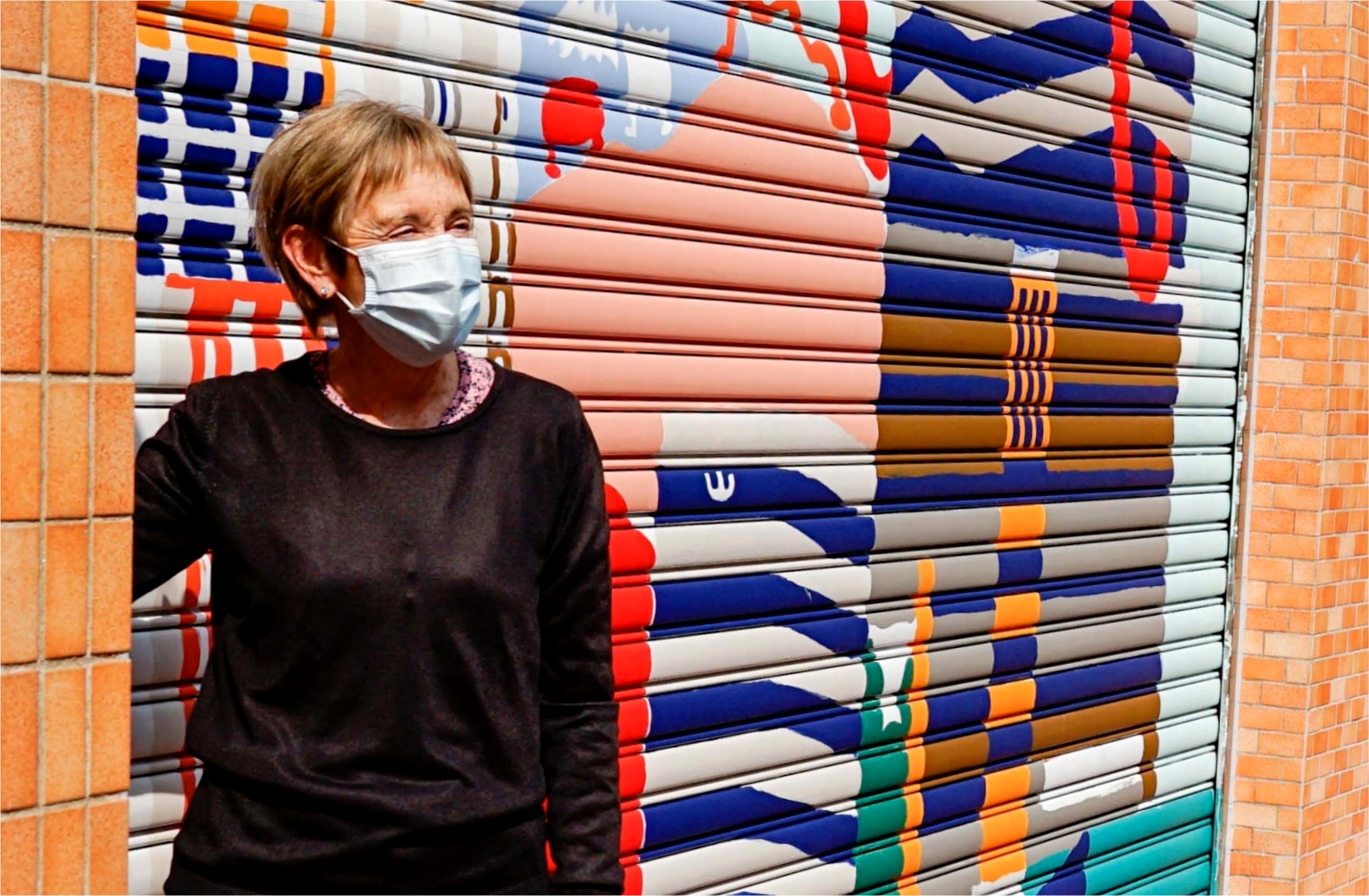Ms. Andrea HOPE, Associate Academic Vice President (AAVP), first joined Shue Yan at the beginning of 1999 as a consultant and was appointed as AAVP in January 2003. She has spent almost 20 of her 30 years in Hong Kong working at Shue Yan. During that time she has played a key role in helping Shue Yan become the first self-financed university in Hong Kong and developing its academic quality assurance mechanisms. Her involvement in Shue Yan’s transformation from College to University informs her account of this part of the institution’s 50 years journey.
In an interview with Shue Yan Newsletter, Ms. HOPE said that Shue Yan had first submitted an application to Hong Kong Council for Academic Accreditation (HKCAA, renamed to Hong Kong Council for Accreditation of Academic & Vocational Qualifications (HKCAAVQ) in October 2007) to upgrade its Honours Diploma programmes to Bachelor’s degrees in 1996, but the application was unsuccessful. In 1999, Dr. CHUNG Chi Yung, decided to resubmit an application to the Government for approval to offer degree programmes, which would make reference to best practice in the government-funded sector, while remaining true to the College’s original vision. Instead of submitting all programmes at once, a plan was programmes each year for accreditation by HKCAA over a five-year period starting in 2000.
2000 was an important year for Hong Kong higher education as a whole, as it was the year when Mr. TUNG Chee-hwa, the then Chief Executive of the SAR Government, announced sweeping education reforms, including the reduction of secondary schooling from 7 to 6 years; the introduction of the HKDSE and the lengthening of university degrees from 3 to 4 years; a massive expansion of higher education places through the creation of a self-financing post-secondary sector; and the possibility that self-financing universities would be created. Looking back, Ms.
HOPE believes that Shue Yan was fortunate to be the candidate that the HK Government had in mind to become the first self-financing university. The possibility of achieving University title was a huge incentive to complete the ambitious degree programme development programme as quickly as possible.
The Institutional Review to assess Shue Yan’s readiness to offer degree programmes and the accreditation of its first three degree programmes: the Bachelor of Commerce (Honours) in Accounting, the Bachelor of Arts (Honours) in Journalism and Mass Communication, and the Bachelor of Arts (Honours) in Chinese Language and Literature was successfully completed in 2000/2001. The Bachelor of Social Work (Honours) followed in 2002. In 2003, The Bachelor of Business Administration (Honours) programme and the Bachelor of Social Sciences (Honours) in Counselling and Psychology programme were accredited and a second Institutional Review was conducted to assess Shue Yan’s progress in response to the advice received from HKCAA in 2000.
In 2004 the Bachelor of Arts (Honours) in Economics was accredited, followed in 2005 by the remaining programmes: the Bachelor of Social Sciences (Honours) in Sociology, the Bachelor of Arts (Honours) in English and the Bachelor of Arts (Honours) in History. Thus, in 2006, Shue Yan submitted its application for a change of title from College to University and underwent a third institutional review, which resulted in the award of Programme Area Accreditation Status (PAA) in all programme areas covered by the existing degree programmes and enabled HKCAA to recommend to the CE in Council that Shue Yan should be granted University title.
Shue Yan was eventually retitled on 19 December 2006. Ms. HOPE claims that she was not surprised but very pleased. She thought the University deserved it, for it had jumped through all the hoops that were set before it to achieve its goal. The response of the students and alumni was ecstatic, and their outpouring of love and gratitude for the Founders and their pride in Shue Yan made all the hard work involved worthwhile.

Since the award of Programme Area Accreditation status in 2006, the University has been able to validate any new Bachelor’s programmes that fall within it PAA status by itself. The first under-graduate programme validated by the Programme Validation and Review Committee (PVRC), chaired by Ms. HOPE since it was established in 2006, was the Bachelor of Social Sciences in Psychology in 2007. PVRC is also responsible for conducting the five year review and revalidation of programmes within the University’s PAA status. As at September 2021 PVRC’s remit includes 14 undergraduate degrees and 2 post-graduate degrees.
Nevertheless, since 2006, HKCAAVQ has conducted Institutional Reviews at 5 yearly intervals to confirm the continuation of Programme Area Accreditation status. Ms. HOPE believes that the University has become more self-confident recently and that this was apparent in the most recent Institutional Review held in May 2021.
“Thanks to the AVP (Academic Vice President), I think we have all been pushed to make progress more quickly over the past five years. That made writing the submission for the Institutional Review exercise more challenging as well. But I think it is fair to say that there isn’t any question that, academically, we are at the appropriate standard, and that the decision to award us University title was a good one, because since we’ve had that, we’ve gone on from strength to strength in terms of our academic achievements. Of course, there is always room for improvement, but we’re getting there.” Ms. HOPE said.
In her view, Shue Yan’s 50 years resilience stems primarily from Dr. HU Hung Lick, Henry, and Dr. CHUNG Chi Yung and their generous commitment to developing a campus infrastructure that befits a 21st century university. The Shue Yan spirit, and its Confucian values, continue to be embraced by the Senior Management and are vitally important to the achievement of the University’s mission. Most importantly, they remain willing to capitalize on the confidence that the community and the government have in Shue Yan because of its background and tradition, to move forward and make changes in order to remain relevant in an ever-evolving society.
Ms. HOPE thinks Shue Yan’s main challenge going forward will be sustaining the momentum it has achieved over the past five years in the fields of programme improvement and innovation, research productivity and improving the students’ learning experience, throughout a period that is likely to feature continued uncertainty and restrictions relating to Covid-19, increased government oversight of the self-financing post-secondary sector, reducing first year admission numbers and challenging succession planning decisions.
She said: “To succeed it will have to continue to turn constraints and barriers into opportunities for progress as it has throughout its 50-year history.”
Despite her retirement as AAVP at the end of 2021, she hopes to continue to contribute to the University in the role of special adviser to the President. She wishes Dr. HU continued good health and the University a long and prosperous future as an institution that is grounded in traditional values and continues to provide relevant and up-to-date opportunities for self-fulfilment to its students and staff.
Source: 50th Anniversary Special Issue
